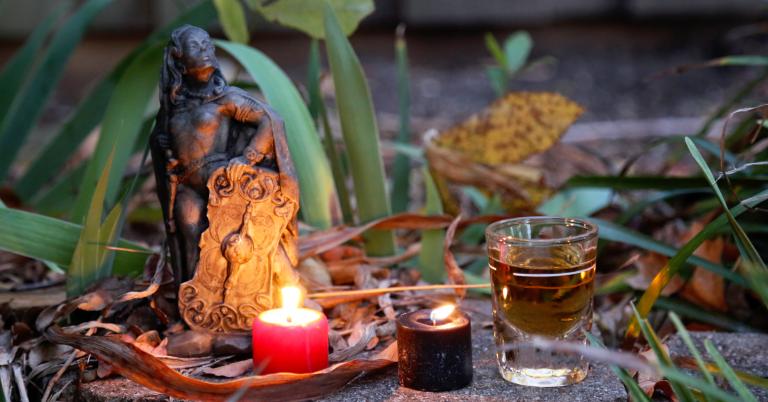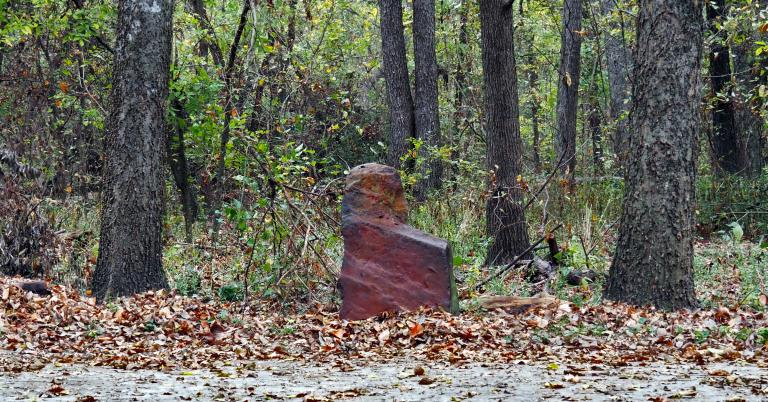The response to Sunday’s post Paganism as a Religion of Relationships was surprisingly good (even mentioning the word “religion” turns some people off). Several people pointed out that I was describing an orthopraxic religion – a religion based on right actions. We’re used to thinking of religion as orthodoxic – based on right beliefs. And that’s because our mainstream culture is dominated by Christianity, which emphasizes belief over all else.
This Twitter thread by Rabbi Danya Ruttenberg presents a Jewish perspective on this:
The idea that Judaism is a “religion” or a “faith” only which hinges on “belief” is such a profoundly Christian concept I don’t even know where to start. We’re a religion, sure, and/though we’re also a people. Peoplehood is tricky to understand for a lot of folks because it is not a Christian concept. You’ll never understand Judaism, Jewishness if you keep imposing Christian paradigms where they don’t belong.
What Rabbi Ruttenberg explains about Judaism is also true of the vast majority religions in the world, both historically (including the pre-Christian religions of Europe which inspire so many of us) and in contemporary life. The idea that religion is primarily about belief is “a profoundly Christian concept.”
There is a place for belief in Paganism. I’ve written about this extensively over the years, and I intend to write more in the coming days and weeks. But the place for belief is not at the center of a religion.
As we build our contemporary Pagan religions, we need to consider what goes into an orthopraxic religion – a religion that prioritizes right action over right belief.
Religion is a group effort
The English word religion comes to us from the Latin words religare meaning “to bind together” and religio meaning “obligation, bond, and reverence.” These are things we do together.
We can have our own individual beliefs. We can have our own practices. But can we have our own religion? Perhaps – or perhaps not – but without others, what we have will be a very weak religion.
In his excellent book The Earth, The Gods and The Soul, Brendan Myers discusses how Pagan philosophy stagnated after the closing of the philosophy schools in 590 CE and didn’t start advancing again until the modern Pagan movement was established in the second half of the 20th century.
Without organizational support, ideas tend to take the form of strongly and/or poetically expressed propositions, and rather little else.
What is true of philosophy is also true of religion. A vibrant, living religion requires sustained human interaction, grounded in right relationships. And our right relationships aren’t centered on shared beliefs, but on other commonalities.
Shared values
The header of this blog calls it “musings of a Pagan, Druid, and Unitarian Universalist.” I don’t write nearly as much about Unitarian Universalism as I did when I started the blog back in 2008, but I remain an active and committed member of the Denton Unitarian Universalist Fellowship.
My beliefs are rather different from most UUs. But I’m part of UUism because we share values, especially the 1st UU Principle “the inherent worth and dignity of every person” and the 7th Principle “respect for the interdependent web of all existence of which we are a part.”
What are our shared Pagan values? There are many, and we don’t all agree on all of them. That’s one of the reasons we have many Pagan religions and not just one. But certainly, the virtues of hospitality and reciprocity. Acceptance of diversity and respect for all. A respect for Nature that for many of us includes reverence. And a love for the stories and practices of our ancestors, whether we use them as guidelines for our own religions or simply as inspiration.
A group that shares common values can always find reasons to work together for the common good. A group with no common values will not a be a group for long.
Shared vision
Agreeing on values – on what’s most important – is only the beginning. How will we live out those values in our lives? What will we build, as individuals, as a group, and as a society?
This can be as basic as an indigenous society saying “we will live as our people have always lived.” It can a reconstructionist group saying “we will live as our ancestors lived, as best we can in this modern world.” It can be a polytheist group saying “we will honor our Gods, our ancestors, and the land on which we live” or a Wiccan coven saying “we will practice in the Gardnerian tradition to the best of our abilities.”
Not all visions are good things. The Evangelical Christian vision is to convert the whole world to their religion. The more radical Evangelicals want to bring about the end of the world.
Good religion is about what we do. A shared vision is our common understanding of what we’ll accomplish if we do it.
Shared commitment
Thoughts and ideas are important, but words can be cheap. At some point we have to turn them into tangible actions.
Can you be a polytheist if you never honor any of the Gods? Can you be a Unitarian Universalist if you never work to build a better world here and now? Can you be a witch if you never do witchcraft (leaving aside the question of whether or not witchcraft is a religion – for some it is and for many it isn’t)?
Different groups and traditions – different religions – will have different expectations for their members, both in terms of what they commit to and the intensity of their commitments. Religions with high expectations tend to be more resilient and last far longer than religions where anything goes.
Or, as most of us were taught growing up, you get out of it what you put into it.
Common rituals
Religion is about what we do. “What we do” in part means how we live on a daily basis. But it also means those ceremonial acts that create meaning and maintain a sense of common identity.
The efficacy of ritual aside (and that’s a big aside for me – in my experience good ritual is very efficacious), its regular performance helps create a common identity. Catholics go to mass. Muslims pray five times a day. Pagans (most of us, anyway) celebrate the Wheel of the Year. This is what we do, so this is who we are.
This is a challenge for those of us who are building contemporary Pagan religions – it’s one of the reasons “pan-Pagan” groups never seem to last very long. The broader your emphasis the more different rituals you’re going to do, and the less meaning and identity you can build. Not to mention the fact that narrower emphases allow for more depth.
Do common rituals in a common manner and eventually you start to develop common beliefs about them. We’ll go into more detail on that in a future post. For now, what’s important is that common rituals are one key part of building an orthopraxic religion.

Clear boundaries
When some of us were discussing the Four Centers of Paganism back in 2013 and 2014, one of the things that became apparent is that Paganism is a movement, not an institution. Movements have no boundaries. They have a center (in the case of Paganism, four of them) and a direction. You aren’t in or out of a movement, you’re closer to or farther away from its center.
Religions are institutions. They have boundaries and either you’re in or you’re out. Most current religions are constantly negotiating and renegotiating their boundaries.
A lot of people in the Pagan movement don’t like boundaries, and they yell “gatekeeping!” whenever they encounter one. But good boundaries aren’t about keeping people out for arbitrary or discriminatory reasons. They’re about preserving traditions. They’re about making sure that people who come into a group share the group’s values and its vision, and that they’re willing to make an appropriate commitment to them.
Not everything is for everyone. Each group, each tradition, and each religion has the right to set its own boundaries. Doing so allows an orthopraxic group to limit itself to those who are willing and able to do the things that form and maintain the identity of the group.
Building an orthopraxic religion
I freely acknowledge that some – perhaps many – people in the Pagan movement simply aren’t interested in religion. But most Pagan complaints about religion aren’t about religion – they’re about Christianity, and usually, about conservative and fundamentalist Christianity at that.
We don’t have to repeat their mistakes and excesses.
We can build a deep and meaningful religion based on what we do.
We just have to understand that religion is a lot more than what we believe.



















